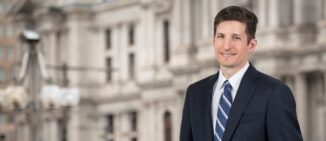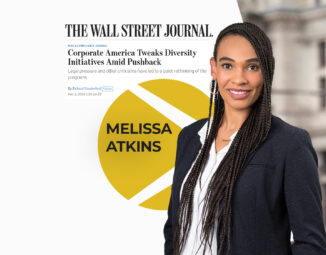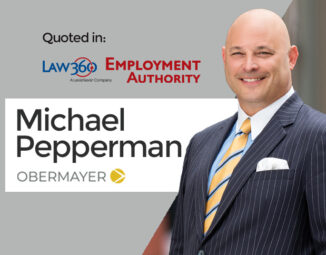President Biden Issues Broad Vaccine Mandates: What’s Next for Employers?
On September 9, 2021, President Biden announced that in the next several weeks, companies with 100 or more employees must mandate that all of their employees either (1) be vaccinated for COVID-19; or (2) undergo weekly testing. President Biden tasked the Occupational Safety and Health Administration (OSHA) with developing the emergency temporary standard that will transform this announcement into a rule that is binding on all large employers. Employers subject to the rule will also be required to grant their employees paid time off to get vaccinated or recover from any vaccine side effects. The pending rule, which will impact over 80 million workers, is expected to include penalties of up to $14,000 per violation.
In addition, the President signed an Executive Order requiring most federal employees and federal contractors to receive the vaccine. The Order states, among other things, that the FDA has determined that all three COVID-19 vaccines available in the United States “meet its rigorous standards for safety, effectiveness, and manufacturing quality,” and that “to promote the health and safety of the Federal workforce and the efficiency of the civil service, it is necessary to require COVID-19 vaccination for all Federal employees, subject to such exceptions as required by law.” The Order directs the Safer Federal Workforce Task Force, which President Biden established on the day of his inauguration in January, to issue further guidance. This mandate is expected to go into effect for federal employees and contractors in 75 days.
Republicans at both the federal and state level have already indicated their staunch opposition to these mandates, raising the possibility of litigation to block one or both of the measures. Furthermore, the details of the implementing standards and rules have not yet been unveiled, and it remains to be seen how quickly OSHA can complete the rule that will apply to large private employers. However, given the relatively short timeframes set forth by President Biden for these rules to go into effect and the possibility of substantial penalties, large private employers and federal contractors should begin to prepare to mandate the vaccine if they have not done so already on their own.
Practically speaking, these mandates are a mixed bag for employers. For those employers who have already rolled out vaccine mandates (either to assuage customer concerns, comply with state or local mandates, or simply to promote public health at large), these new mandates may help provide additional confirmation that companies have “done the right thing.” On the other hand, the pending OSHA rule will force other large employers and government contractors to enter into the sometimes sticky business of presiding over a mandatory vaccination policy. Notably, both new mandates are expected to include exemptions for individuals with disabilities that prevent them from becoming vaccinated (as required by the Americans with Disabilities Act), and for those who refuse the vaccination based on a sincerely-held religious belief (as required by Title VII of the Civil Rights Act). While there are only limited medical conditions that actually serve as a bona fide basis for vaccine refusal, navigating the religious exemption can be a trickier proposition for management and human resources employees on the front lines. HR Legalist will follow up shortly with a primer regarding mandatory vaccination policies and medical and religious exemptions. In the meantime, large employers and federal contractors should begin to draft policies and communications to their employees in order to proactively prepare for these new requirements, and work with their counsel to address any legal and practical concerns.






